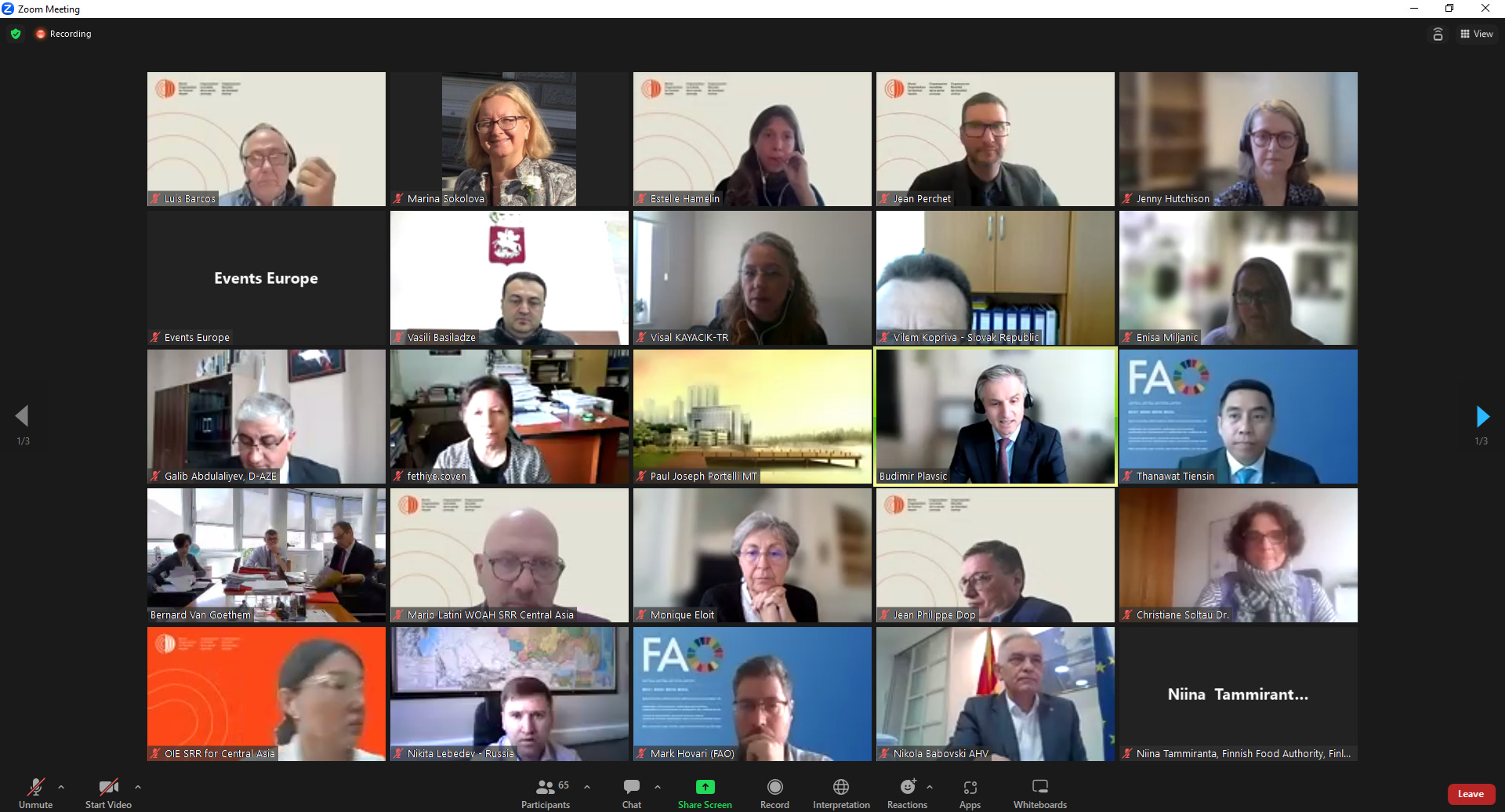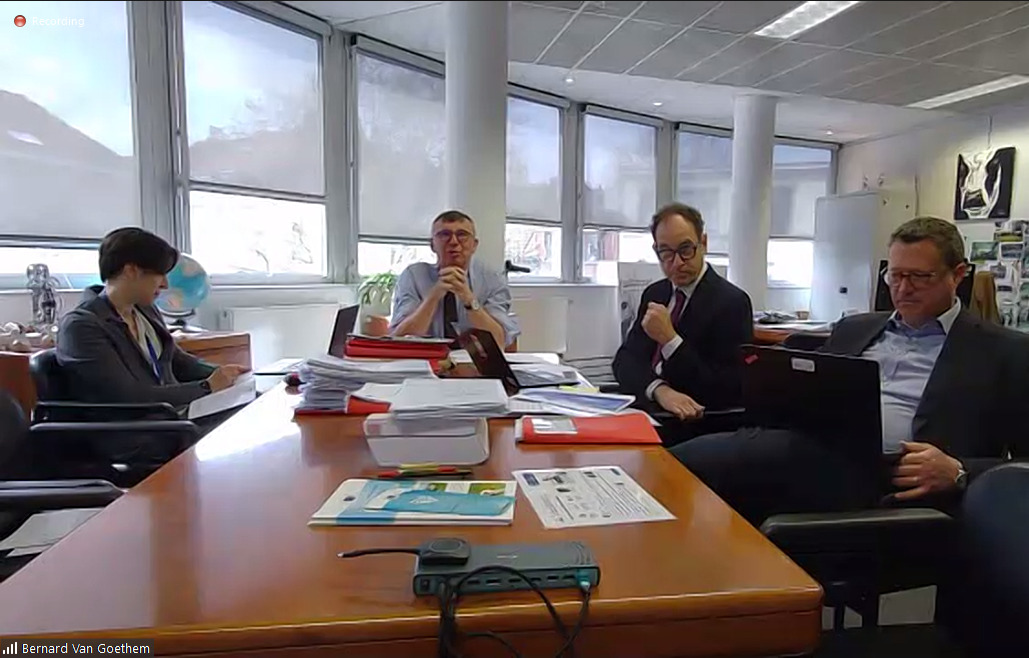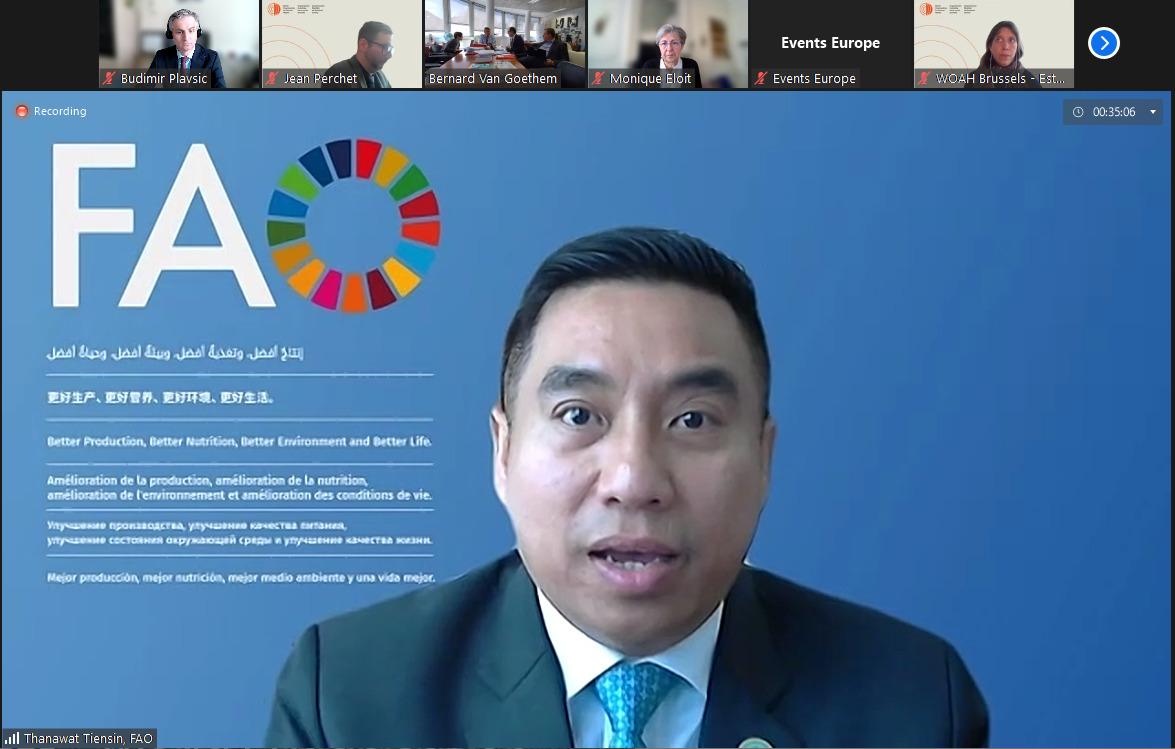The Regional GF-TADs for Europe established a Standing Group of Experts on High pathogenicity avian influenza (SGE HPAI), which will regularly meet and review disease prevention and control options, exchange epidemiological information and best practices in the region, and agree on an optimal coordinated strategy based on the One Health approach.
The SGE-HPAI for Europe, composed of Delegates of 53 Member countries from the region and their experts, representatives of European Commission (DG SANTE), regional offices of Food and Agriculture Organization of the United Nations (FAO) and World Organisation for Animal Health (WOAH), had its first meeting on the 2nd of May to discuss Highly pathogenic avian influenza (HPAI) and the risks it poses to the poultry industry and public health.
The President of the Regional Steering Committee of the GF TADs for Europe, Dr Van Goethem, explained that the current situation in Europe on HPAI epidemiological patterns fully justified initiating a new SGE to provide a platform for discussion and encouraging transparent communication between its members. Through this platform, Members will aim to identify regional needs. Integrating the Recommendations of the meeting of the Conference of the Regional Commission for Europe in Catania in 2022 will be an important step in defining technical guidance for the Region. Dr Van Goethem underlined that establishing the milestones and developing a roadmap will provide clear and measurable targets that will guide our progress.
Dr Eloit, WOAH Director General, noted the GF-TADs is providing an effective platform for regional and inter-institutional coordination and cooperation. Collective experience will be of value to review together the Global Strategy on HPAI, alongside efforts carried out in the OFFLU framework on diagnostic tools, surveillance and new innovative vaccines. She mentionned a major need to build capacity of the veterinary services in all Member countries to protect animals, limit the risk of spillover to human populations, and create higher resilience of farming systems. Dr Eloit emphasized WOAH’s core values: transparency, scientific excellence, and collaboration.
Dr Tiensin, speaking for FAO, highlighted the need for additional knowledge, along with continued efforts for intersectoral cooperation. Such complex challenges cannot be solved by one ministry or sector, or organisation, and needs multisectoral approach. We are working together on revising the HPAI Global Strategy. FAO will support all partners and donors engaging with HPAI and is currently extending its efforts into Latin America and Caribbean, as well as in Central Europe.
After careful deliberation, the group established several recommendations to address the threat of HPAI. Key recommendations include ensuring appropriate levels of surveillance and biosecurity measures at the farm level, engaging surveillance in mammalian species, closely following genetic mutations increasing the risk of the virus to spill-over to mammals and focusing joint efforts on providing science-based risk assessments to assist veterinary services of Member Countries in securing high levels of animal health and safe international trade.
Additionally, Members exchanged information about the development, testing, and use of vaccines against HPAI and encouraged research institutions and vaccine manufacturers to invest and collaborate on research and development of effective and safe HPAI vaccines adapted to different poultry species in accordance with the standards in the Terrestrial Manual.
Finally, the group plans to contribute to revising the HPAI global strategy to support regional efforts in controlling and preventing the spread of avian influenza viruses of high pathogenicity and communicate these efforts to relevant stakeholders and the general public.
Presentations:



